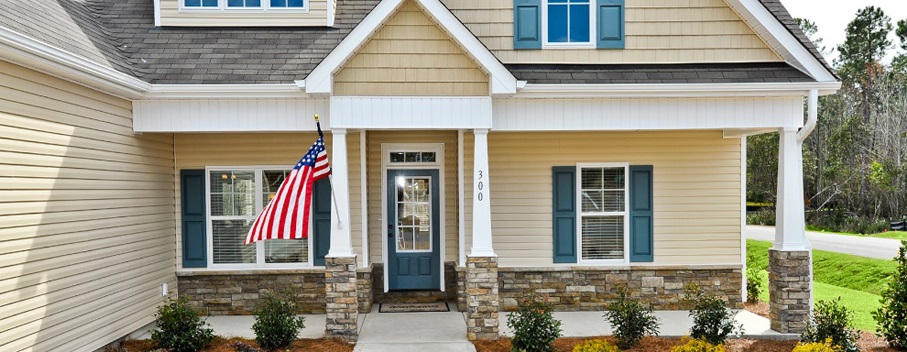BASE/POST HOUSING
BASE/POST HOUSING
Not everyone wants to live on base, but for those that do it is a very tight-knit community. Finding housing when PCSing is one the most daunting and challenging experience one would go thru. Not knowing where your’ family is going to live, is one of the most stressful things to a service member to experience.
Service members are all required to check into base/post housing office upon arriving at the new duty station. Most housing offices are the main source for information on the local community. The staff at your housing office will let you know the availability of housing on base. Most waiting list for all ranks are between one month and six depending on the installation. Today's housing staff may also be able to help you in finding temporary lodging and or recommend something local. You can also contact the local CERTIFIED MILITARY RELOCATOR agent for available Rental or Sales listings by each base.
Housing options for most installations vary widely with DOD going to Privatization of housing, but not all installations have made that transition. Under the military housing privatization initiative most housing areas have been improved and have also increased availability of homes for living on base or post. In most privatized housing, military members will still continue to receive their Basic Allowance for Housing (BAH). Service members will sign a lease with the privatized housing manager and pay them rent directly. In most of the privatized housing communities service members are still responsible to pay for their utilities or a portion of them. So check with base housing to see their rules and lease agreements.
A benefit of living on base housing is that it gives you a sense of security. The housing is usually on the base and the military police or MPs act as your own police force. Of course, nobody should be on the base that is not supposed to be there.  The gates to most bases/posts are guarded and identification is checked when one drives on the base. It’s like your own little gated community that is protected by some of the best trained servicemen and women in the world.
The gates to most bases/posts are guarded and identification is checked when one drives on the base. It’s like your own little gated community that is protected by some of the best trained servicemen and women in the world.
Another benefit to living on base housing is that you live amongst people who know who you are, what you do, and that you belong there. Military families have an instant connection because they know about what their significant other does for a living and that connection goes beyond the neighborhood. There is a common purpose and common experiences that bond military families and with that bond the community is friendlier and safer than neighborhoods found outside of military bases.
The military neighborhood is a tight neighborhood. Neighbors dine together, play together, and work together. It is a camaraderie that goes beyond the job. Significant others, children, and even those live in in-laws find their place in the community quickly and friends are made that sometimes last a lifetime. The children, traditionally called military brats, have probably been uprooted before and will be able to find friends with similar experiences to bond with. There are wives’ clubs, recreational centers for the children, and many bases have swimming pools, golf courses, and other sports related areas. Base housing areas come in various sizes with anything from row homes to single-family homes to apartment complexes and all bases are different. There are even some base/post housing areas that are not connected, but have the same security as though part of the base. Go to Main page Linked that represents your service and find the base in which you are going to. There you'll find more information specific to that base/post.
Living in military housing can save you money. Most of the time, the utilities are paid for by housing. That means your water, electric, gas, and waste disposal is provided for. There are no contractors to call when you have a problem like a leaky roof or termites. The housing is taken care of by the base and they will arrange for contractors, make sure the work is done up to code, and will even check back with you to make sure your problems were solved and the work was complete. The money saved from not having to pay utilities can be spent on other family expenses.
Unlike most non-military neighborhoods, when you live on base housing you have quick access to services. Most bases have a hospital, a school, and of course the Military Police. With the amenities being so close, money will again be saved on transportation costs such as gas and mileage on the vehicle. Most bases have a commissary to buy groceries or a PX to buy anything besides food that is needed. These facilities have discounted prices for the military and in some case, there are deals to be found. There are even gas stations located on the base that sells cheaper gas and cheaper repair services.
With each base, a unique set of rules and standards are set for the families to live by. These regulations are independent from base to base and can include yard maintenance, paid utilities, or other services. While some base housing may have a full list of amenities, others can be lacking. It is up to the military housing office or the property management company to set, maintain, and enforce the rules.
If one is considering base housing, it is important to look at the guideline for the neighborhood. Pet restrictions are one item that should be looked at closely especially if a pet or pets are owned. Pet restrictions could be as simple as the size of your dog or breed. Some base housing does not allow certain breeds such as Pit Bulls or other aggressive canines. There may be a limit on how many dogs or cats you are allowed to have. As with a city’s pet law, base housing can have some dos and don’ts that really need to be looked at before making the decision to live there.
Most base housing will have rules and regulations on the appearance of the yard and home. Some are like covenant civilian neighborhoods where the houses are to remain the same color. Yard maintenance is another issue to consider. Most base housing has strict lawn height rules and will issue a warning or ticket if the lawn is not kept up to specifications. If you are not an outdoors person, then this consideration is important. Lawns and the home have to be kept up.
Most bases have temporary housing where you can wait for a house to open up on base housing, but these are short term lodgings. Before you leave your current station, call ahead and see if there is a waiting list and how long it is. You might want to look for a short term lease to rent in town so that you at least have a place to send your belongings during the move.
If base housing sounds right for you, contact the housing office or the Base Privatization property management office. There are sometimes an extensive waiting list of families wanting to move on base. These lists can be months down the line, so you might want to get on the list as soon as you can. There are many benefits to base housing and some families will spend their entire military career moving from one base to another and living on base. Remember to look at the pros and cons of this decision. If you make the decision and then decide against it, you are taking a place on the list that could go to a family who really wants it. So let the housing office know if you’re no longer wanting to live on-base.
Do I Qualify for Exceptional Family Member Program
-
What is an EFM? An EFM is a family member with a physical, emotional, developmental or intellectual disorder that requires special treatment, therapy, education, training or counseling.
-
This is a mandatory program that works with both military and civilian agencies.
-
EFMP provides comprehensive and coordinated community support, housing, educational, medical, and personnel services to families with special needs.
-
Its primary objectives are to ensure service members are assigned to locations where services exist. This is especially important on overseas assignments where services may be limited
-
It assures that the Service Members performance is not affected by the demands of caring for their Exceptional Family Member.
Check out our EFMP page and if you can add or help someone else.. Tell us!!
Though many consider their pets to be a part of the family moving them could be quite an experience. You will need to check with your new base/post housing office to ensure that your pet is not listed as a prohibited breed some of these breed include, but are not limited to the following:
-
Pit Bulls(or any mix of the breed)
-
Rottweiler
-
American Staffordshire Terriers
-
English Staffordshire Bull Terriers
-
Wolf Hybrids
-
Other prohibited animals may include
-
Ferrets
-
Snakes
-
Rodents
-
Tree or Wood Dwelling Animals (skunks, raccoons, squirrels, ect.)
-
Exotic Animals
-
You will also want to ensure that your pet meets or exceeds all Base/Post immunization and micro chipping requirements. Lastly, don’t forget to have your veterinarians records forwarded to your new veterinarian.
If you think of anything we should have on this page for PCSing, let us know. Click Here to tell us!!


